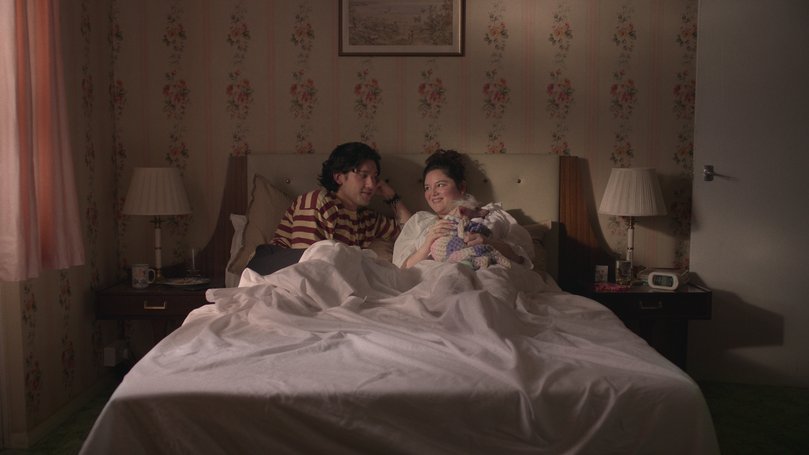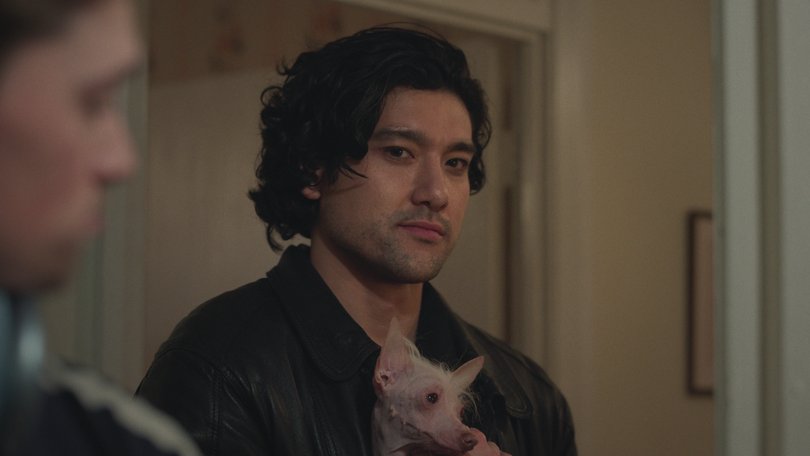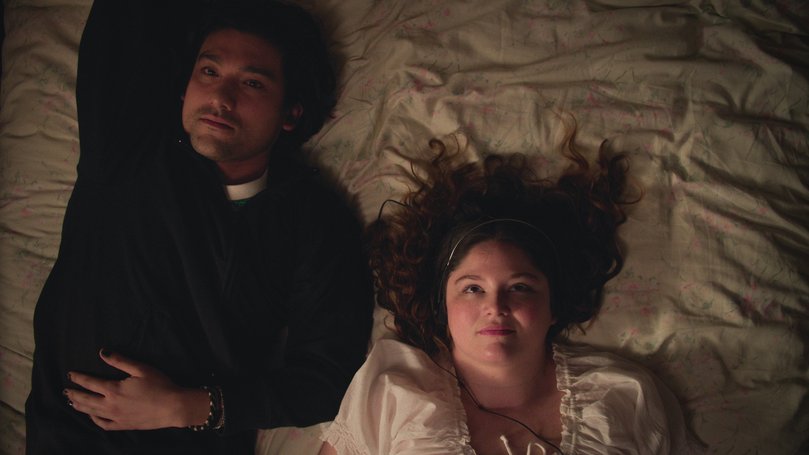Too Much on Netflix: Will Sharpe is not just a rom-com hero
Will Sharpe broke out internationally on The White Lotus but he is no mere supporting star.

Outside of the UK, Will Sharpe’s arrival on the international stage was with the second season of The White Lotus.
Playing one-quarter of the two young couples in Sicily who are confronted by questions of their sexual desire and boundaries, Sharpe’s profile exploded.
For those who encountered him for the first time in Mike White’s Italian bacchanal, they might’ve been surprised to know that not only had he featured in the likes of Sherlock, Casualty and Giri/Haji, he was also a well-established filmmaker, having written and directed three features including The Electrical Life of Louis Wain with Benedict Cumberbatch, and two TV series, both starring Olivia Colman.
Sign up to The Nightly's newsletters.
Get the first look at the digital newspaper, curated daily stories and breaking headlines delivered to your inbox.
By continuing you agree to our Terms and Privacy Policy.Sharpe is no mere supporting actor.
Before he dons an 18th century Viennese wig as Wolfgang Mozart in the upcoming TV remake of Amadeus, he will play the romantic lead in Too Much, Lena Dunham’s highly anticipated TV series.

Too Much is the most personal TV project Dunham has made since her seminal series Girls wrapped in 2017, and it draws from her own experience of moving to London in 2021, where she met her now husband, Luis Felber, a musician.
Sharpe’s character in Too Much, Felix, is also a muso, and plays opposite Megan Stalter (Hacks’s Kayla), who portrays Jessica, a New Yorker with a creative job, who decamps to the English capital after a break-up.
The parallels between the show and Dunham’s real life are there, but Sharpe says Too Much is only “loosely inspired”.
“Right from the outset, it was very clear that Jess and Felix are their own characters, so whether there some gentle similarities, I never really felt like Meg was playing a version of Lena, I always felt like she was playing Jess, and I also wasn’t really trying to do an impression of Lu or anything,” he told The Nightly.
If Felix isn’t Felber, he is a little bit Sharpe, including half-Japanese, which the character became after Sharpe was cast.

“Often you can feel (Dunham) tailoring (the scripts) to the actors,” he explained.
“Even from our very first conversation about the show, then a month or two later, I’d read some drafts and I could see how, even just offhand conversations, stuff we talked about, had found its way into certain scenes or she pushed certain things in a different direction, or further so.”
That’s Dunham’s gift. She is able to so astutely capture people or moments so that her characters feel as if they’ve lived a whole life without us watching.
Especially as a filmmaker himself, Sharpe was excited to meet and work with Dunham. He had high hopes for the experience but was still able to be surprised by the process.
He said, “Her story brain is so fast and formidable, and she can really think on her feet. She’s written these brilliant scripts but she’s not precious about them at all.
“Very collaborative, very curious about what everyone’s ideas are, and what they have to offer. She brought a very warm spirit to the set.”

The fictional Jessica arrives in London with fantasies of Jane Austen and Richard Curtis rom-coms. She poses in front of a blue door in Notting Hill, and dreams of bonnets and flower-petalled wedding confetti.
Too Much is a show that works with rom-com and marriage plot tropes, but it’s also a series that deconstructs and plays with them, but with love. Jessica and Felix are complex. They have unresolved painful histories that manifest in destructive behaviour.
Sharpe doesn’t see Felix as an Austen romantic hero. “Whether it’s modern rom-com archetypes or historical archetypes, Lena’s very aware of all those tropes. It’s handled very much in her own voice, and in her own way.
“Felix doesn’t know he’s in a romantic comedy, so a lot of the time, I was just kind of like, ‘Well, he’s trying to be a good person and he’s not always managing and he has compulsions that are not always healthy.”
The character may be complicated, but he is still charming, and is, ultimately, someone who could potentially set a lot of hearts aflutter off-screen. Felix, like most Dunham characters, is far from two-dimensional, and will provoke a lot of complex reactions from the audience.
Some will be gushy, some will be empathetic and some may be questioning.
For Sharpe, it was just rewarding. Expectations met and exceeded.
Too Much is streaming on Netflix from July 10.

